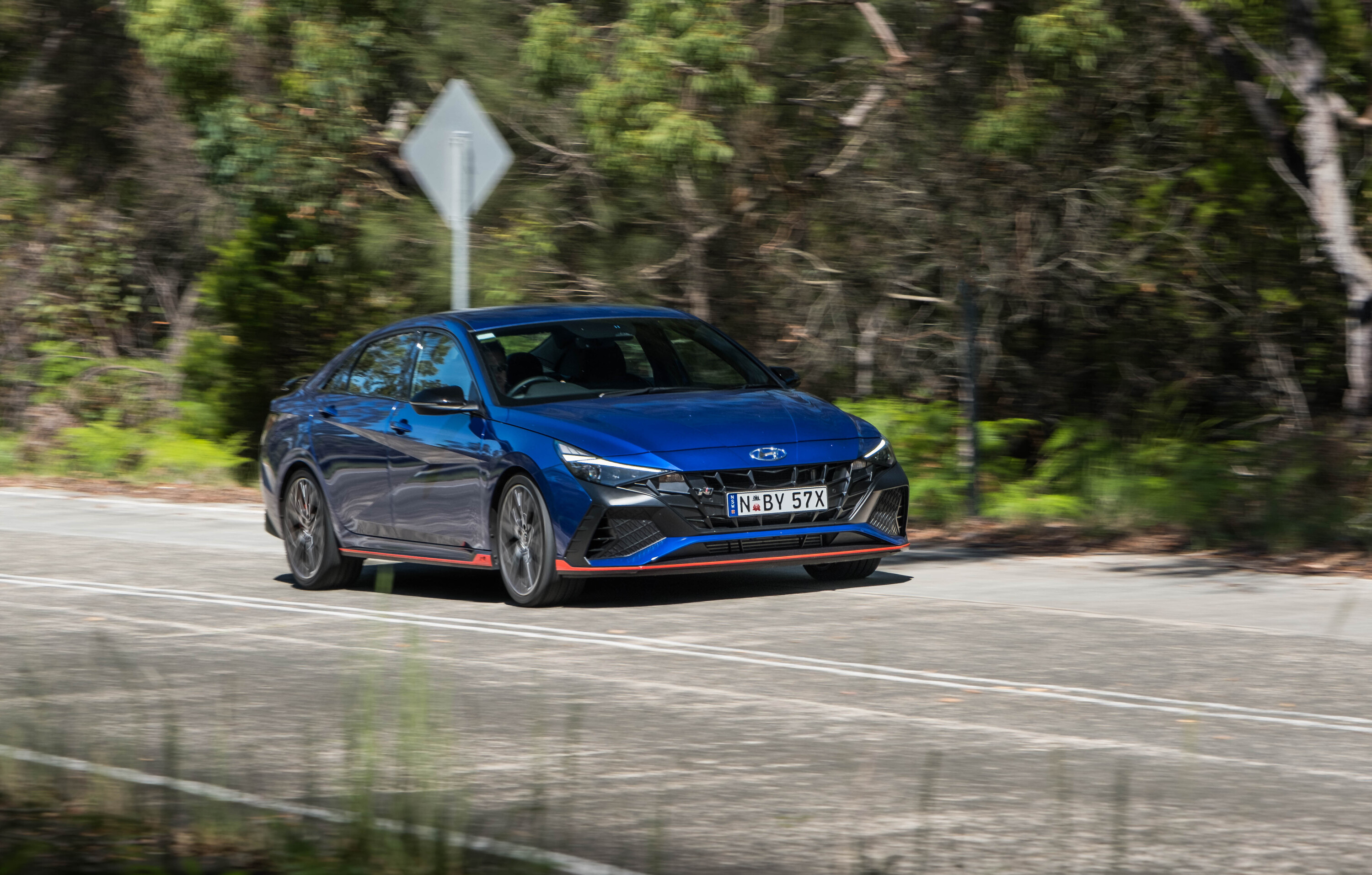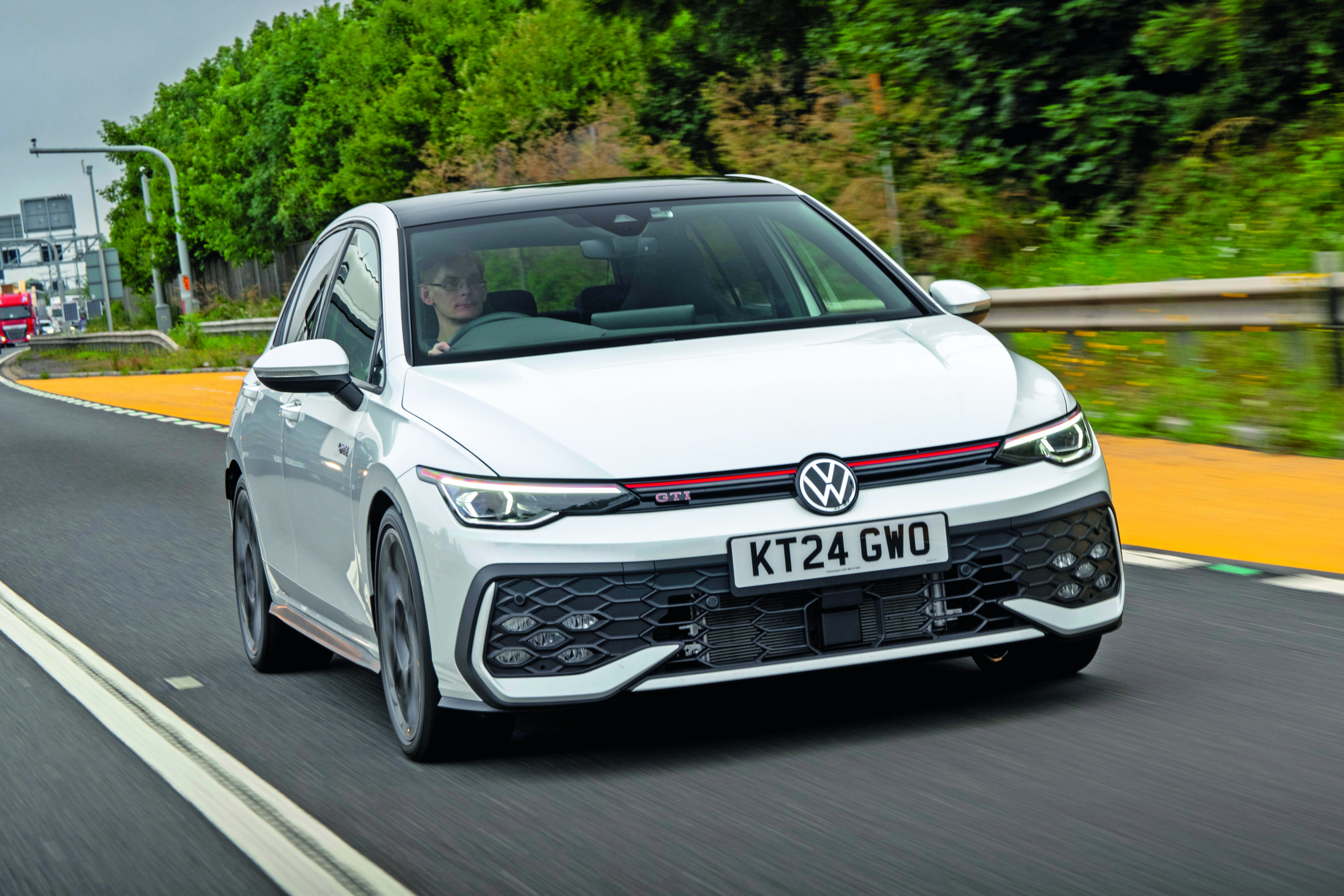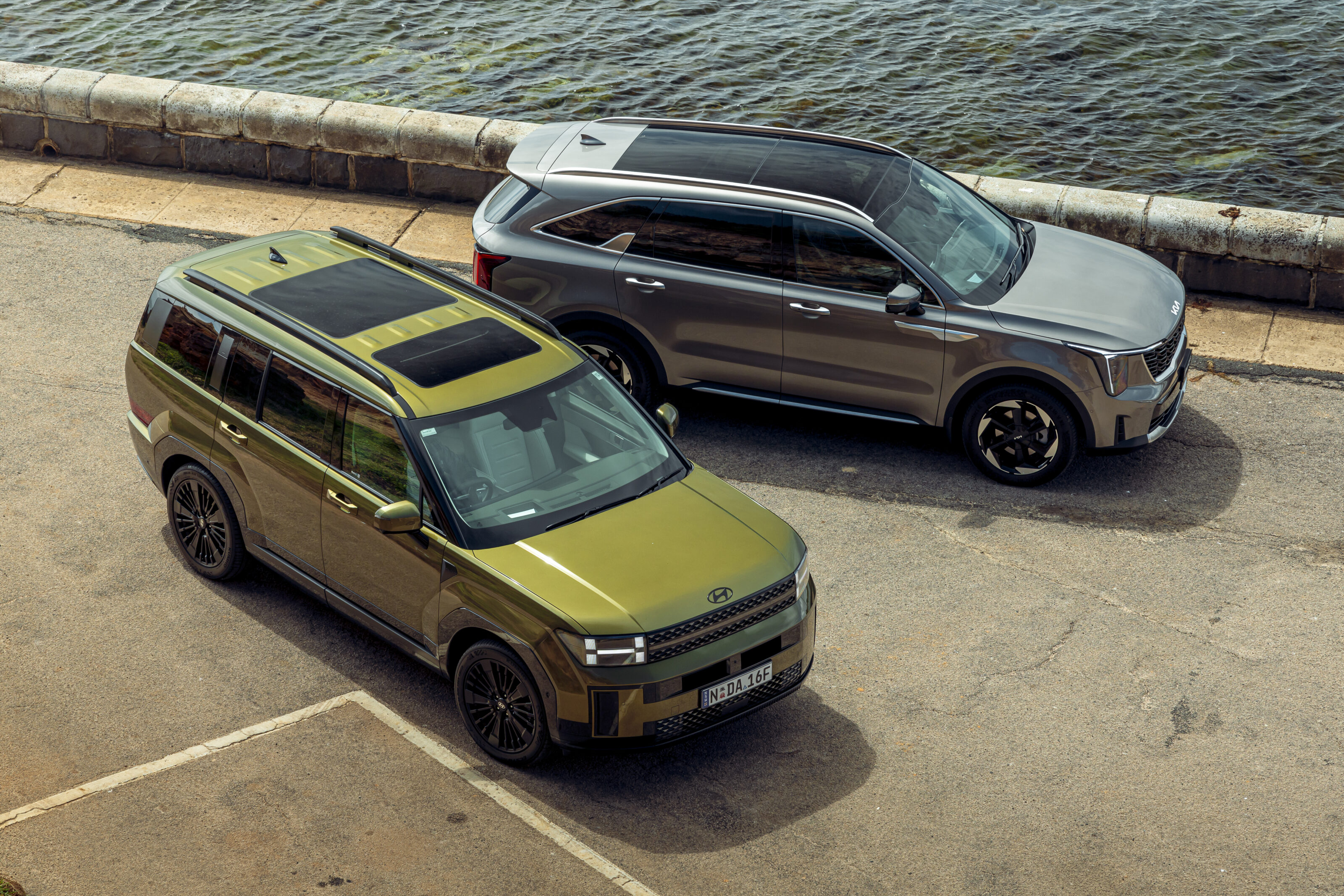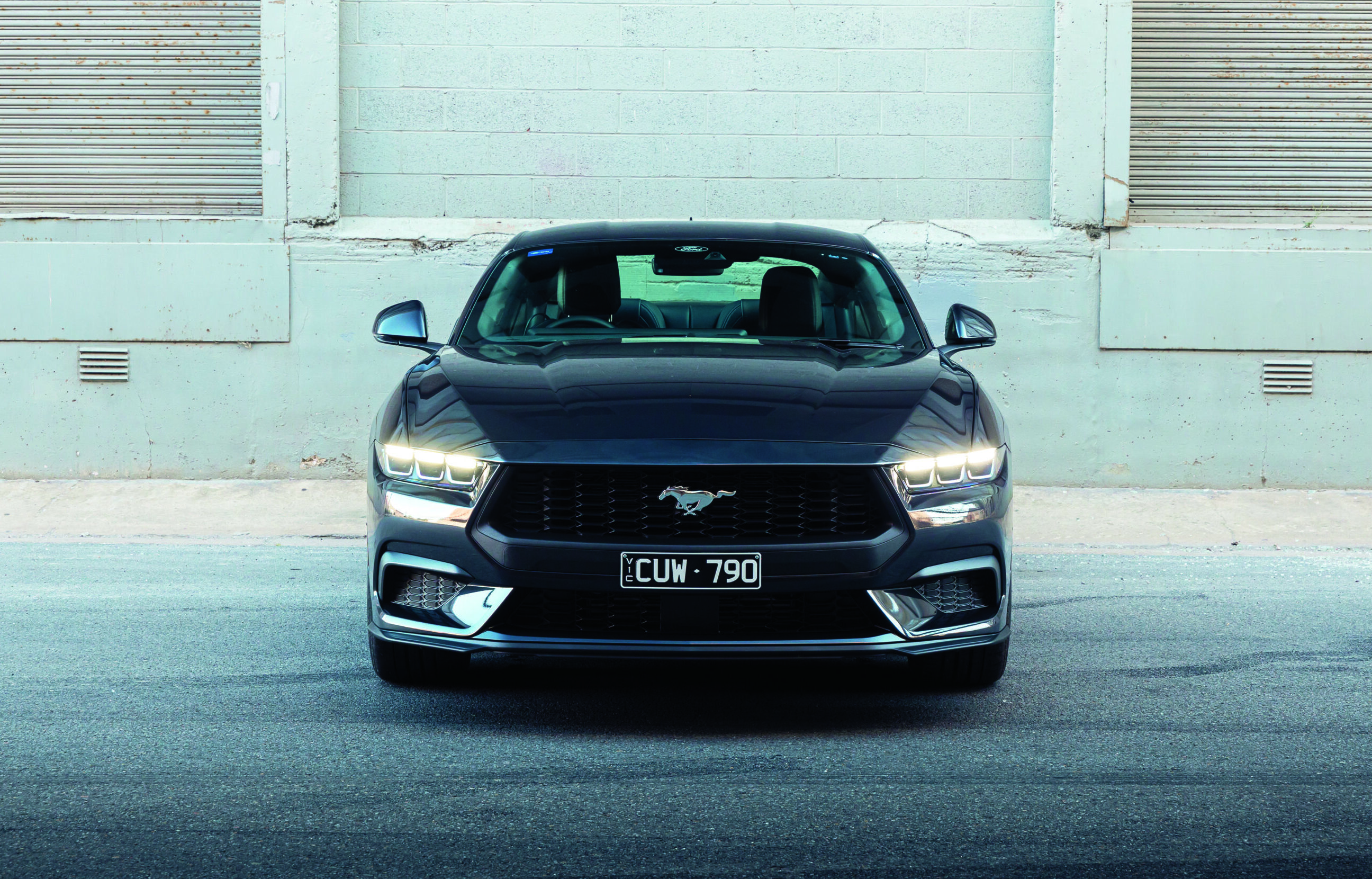Score breakdown
Things we like
- Awesome drivetrain
- Fantastic fun to drive
- Genuine everyday proposition
- Looks amazing
Not so much
- Front passenger seat unpowered
- Lots of grey plastic
- No wireless smartphone integration
- No adaptive cruise
You can buy a Corolla sedan and fit five people in it, but at no stage in the process will anyone go, “Wow!”
Well, maybe at the fuel economy and the boot space, but not much else. And that is never going to change.
You can, however, buy a Hyundai i30 Sedan that will get a few murmurs going. For a start, it looks amazing. Designer Luc Donckerwolke brought his set square with him from Lamborghini and showed his Korean charges how to make cars look really fast standing still, even in sedan form. Step up to the N-Line and it’s got a 1.6-litre turbo-petrol that makes it go moderately briskly.
But you want a proper wow. You want something that pops and bangs and is a bit anti-social when you press the right buttons. You want one that you can fight a little bit in the corners or one you can take to a track and not be embarrassed – without an eye-watering price tag.
Maybe the i30 Sedan N is for you.
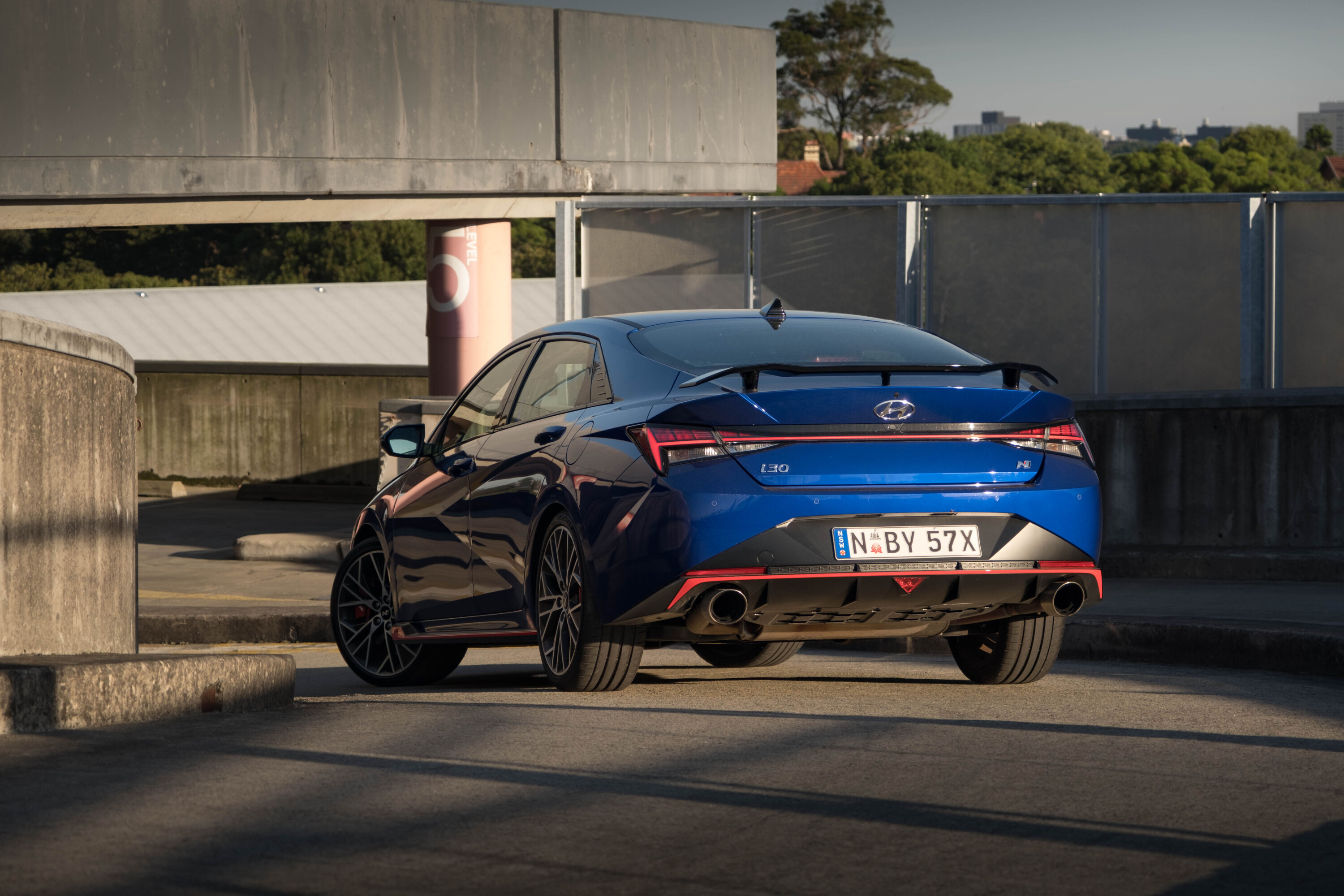
JUMP AHEAD
- How much is it, and what do you get?
- How do rivals compare on value?
- Interior comfort, space and storage
- What is it like to drive?
- How much fuel does it use?
- How safe is it?
- Warranty and running costs
- VERDICT
- Specifications
How much is it, and what do you get?
The i30 Sedan N starts at $50,200, a modest increase on the $49,000 it commanded at launch (both before on-road costs).
It’s more expensive than the hatch but you get more for your money, quite literally, as it’s a markedly bigger car.
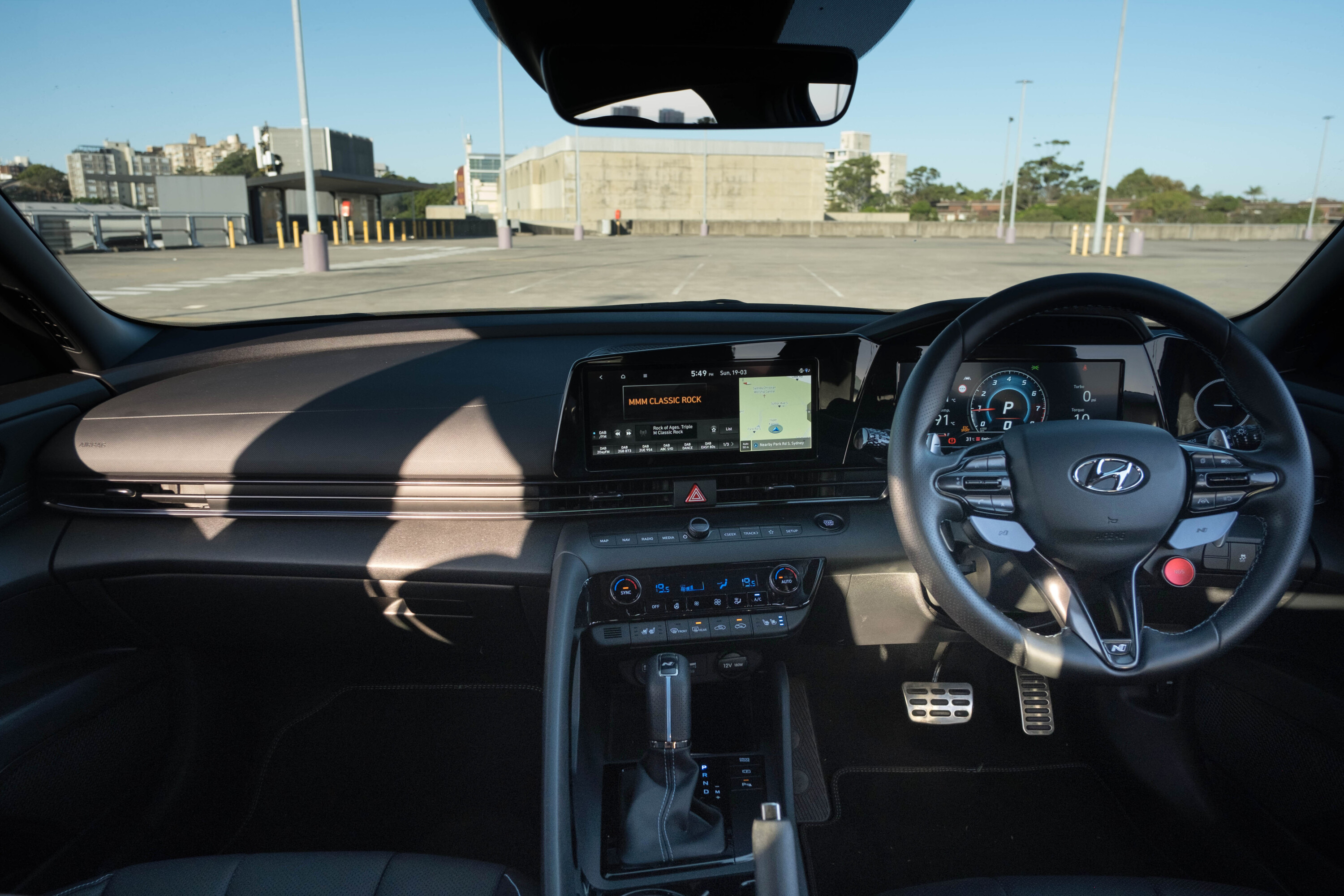
| 2023 Hyundai i30 Sedan N standard features | |
|---|---|
| 10.25-inch digital dashboard | Gesture control boot release |
| 10.25-inch touchscreen | Heated and ventilated passenger seat |
| 19-inch alloys | Imitation leather and suede seats |
| 8-speaker stereo | Keyless entry and start |
| Adaptive damping | Launch control |
| Auto LED headlights | Powered, heated and ventilated drivers seat |
| Auto wipers | Remote start |
| Cruise control | Satellite navigation |
| DAB+ digital radio | Space-saver spare |
| Dual-zone climate control | Wired Apple CarPlay & Android Auto |
The best colour for an i30 Sedan N – in my humble opinion – is Performance Blue and it’s free. Atlas White is too, but the five remaining colours, including the rather arresting Intense Blue of this test car, are $595, which isn’t too bad.
Apart from paint, the only factory option is a $2000 sunroof.
Your dealer will sell you lightweight 19-inch OZ alloys ($3650) or performance brake pads ($369/$249) to go with the rest of the usual assortment of roof racks, mats and whatever else your dad fits to a sedan.
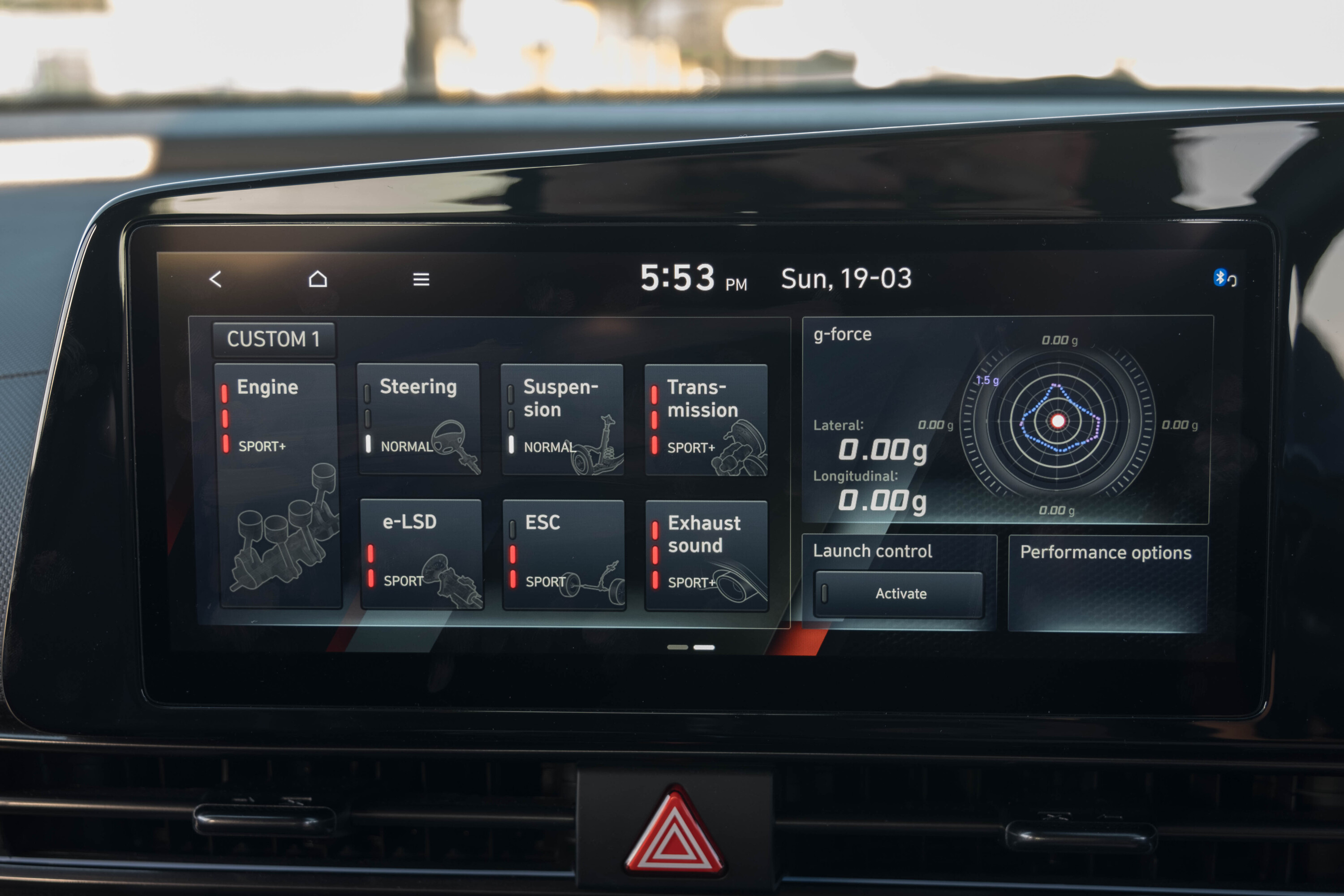
How do rivals compare on value?
Small performance sedans are incredibly thin on the ground in Australia. Actually, they’re thin on the ground in the whole world.
So, basically, the closest thing to a Hyundai i30 Sedan N is probably the Audi S3 sedan, which is more than $73,000. There is much to commend the S3 but it’s not $50K and not that much quicker for the extra outlay. A bit more sober looking, though.
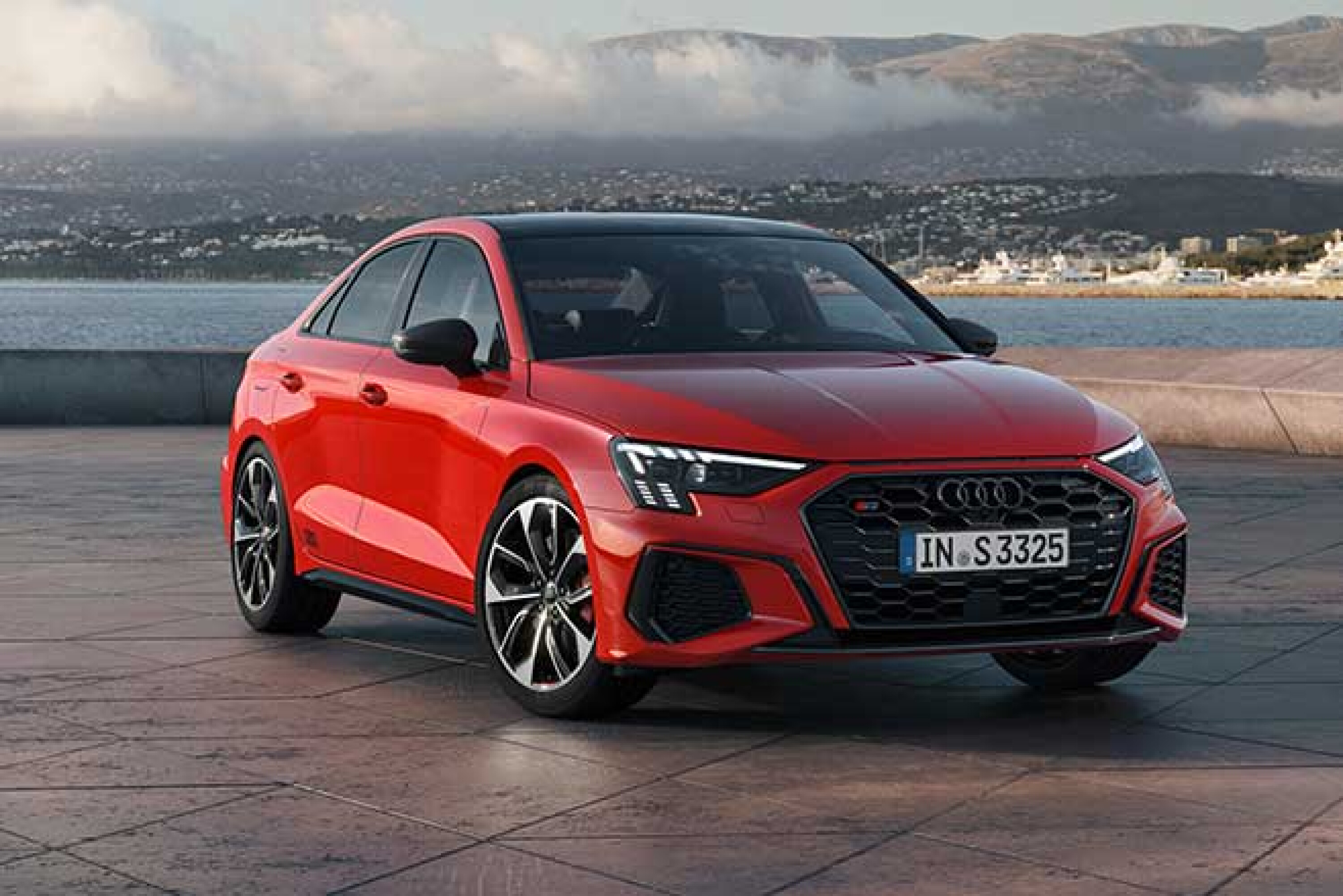
Interior comfort, space and storage
As if to hammer home that the sedan is different to the hatch, owners of the latter i30 would, at first glance, not recognise much about the interior.
Like the exterior, it’s a little more adventurous and, as you’re only able to get the Premium spec in the sedan, is at its best with two big screens spread across the dash rather than the dinky screen adrift in a plastic panel of the lower-spec models.
It’s a bit monochrome but if you’ve seen the two-tone of the non-performance mid-spec i30 sedans, you’re probably not going to be too fussed.
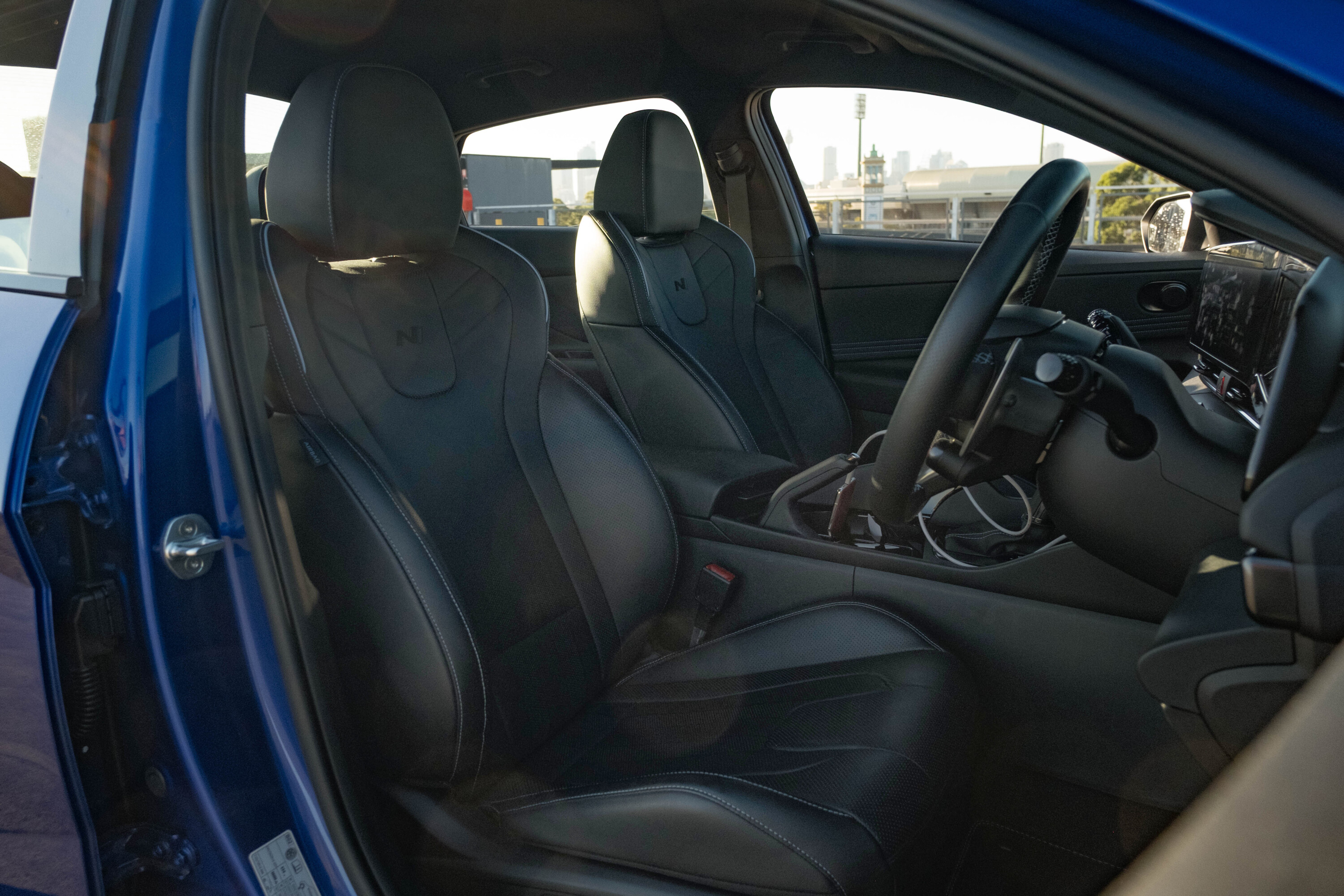
The blue stitching on the seats is cool and the car I had featured fake suede inserts, which is nicer than the leather. You’ll find N logos scattered around the cabin too. The front seats are very comfortable and have heating and cooling. The cooling was very handy in Sydney’s late summer burst of Singapore-style sweatiness.
A pair of cup holders, a wireless phone charger and a modestly-sized console bin look after your various storage needs, while the doors feature long pockets and a bottle holder.
Moving to the rear, there’s more headroom than the racy angles of roof and glass suggest while rolling on a longer wheelbase means much-improved room over the i30 Hatch and, if you’re cross-shopping with the Kona N, better than that too.
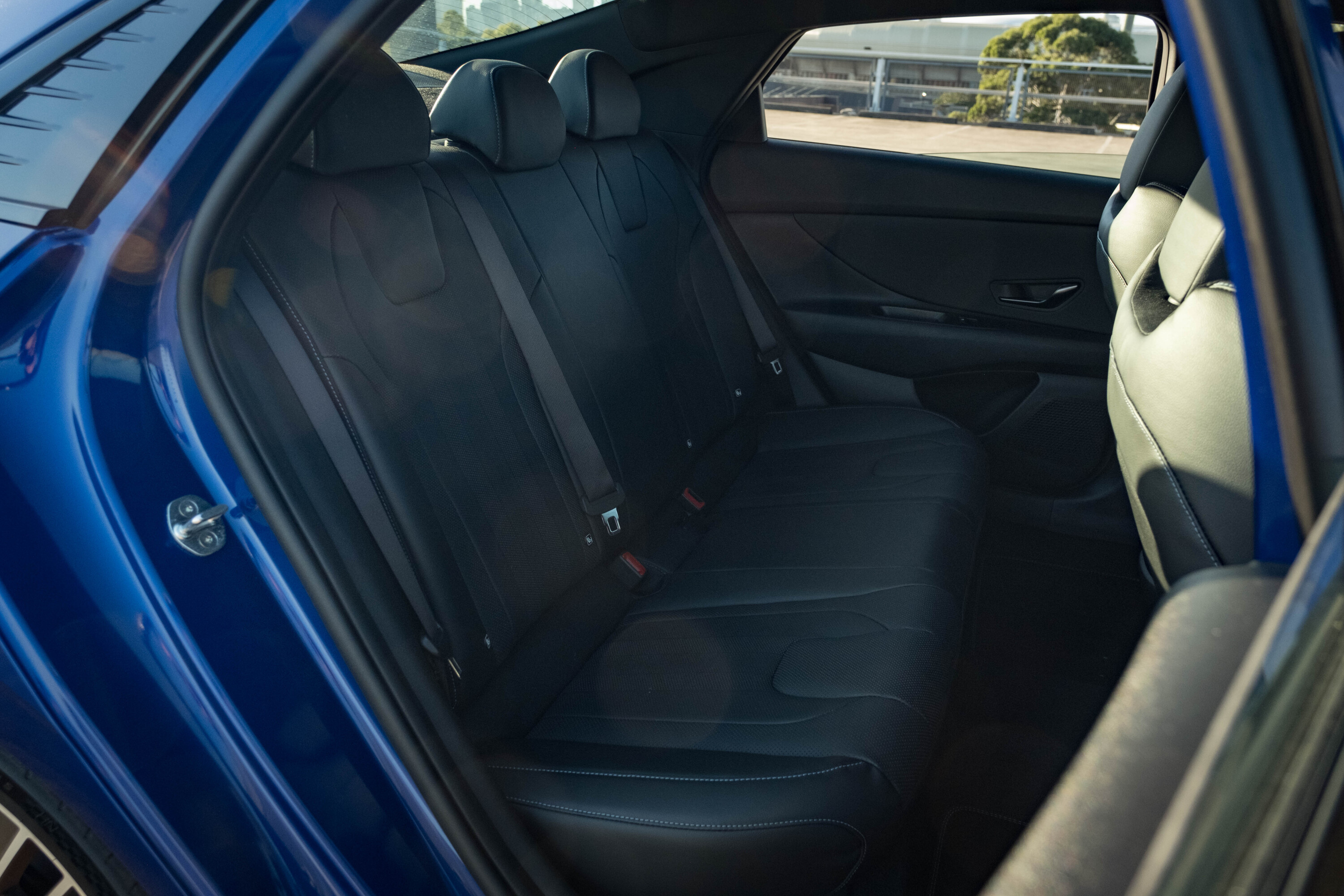
There is no centre rear armrest, so no cup holders but the doors have a bottle holder each and you get air vents back here too. The rear bench isn’t the shapeliest of spaces, so you will get three across at a pinch. That might help with side support if the driver is a little enthusiastic but two-up you’ll need to hang on tight.
Although the boot isn’t gigantic, it comfortably wallops the i30 hatch with 474 litres. The brace behind the seat negates any advantage in folding them down unless you’re carrying long thin items but you will be exempt from Ikea runs, which is worth the price of admission itself.
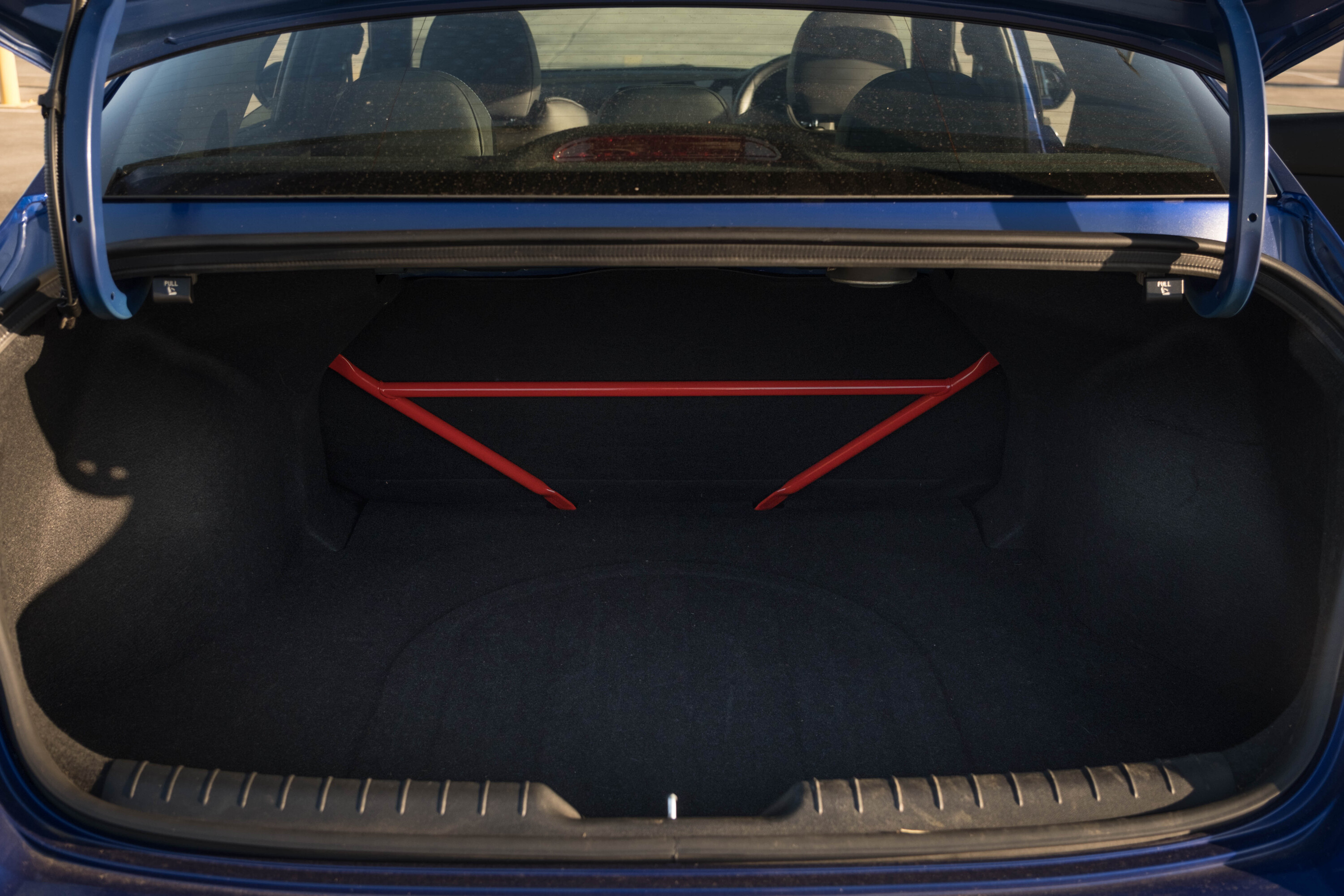
What is it like to drive?
The i30 N hatch was a bolt from the blue. Years of hype preceded it, but when it landed, it sent a shockwave through the establishment.
It certainly shook VW from its slumber and probably had a pretty decent hand in the demise of the Renaultsport Megane. None of those cars were slouches, but Hyundai offered a sharply-priced performance hatch with things those other cars didn’t have.
The Sedan N came a couple of years later with a few minor tweaks to the formula. Well, I say minor, but it runs on a longer wheelbase with a newer ‘K3’ architecture and a new interior. So it may as well be a completely different car. (Indeed, it’s still known as Elantra everywhere else.)
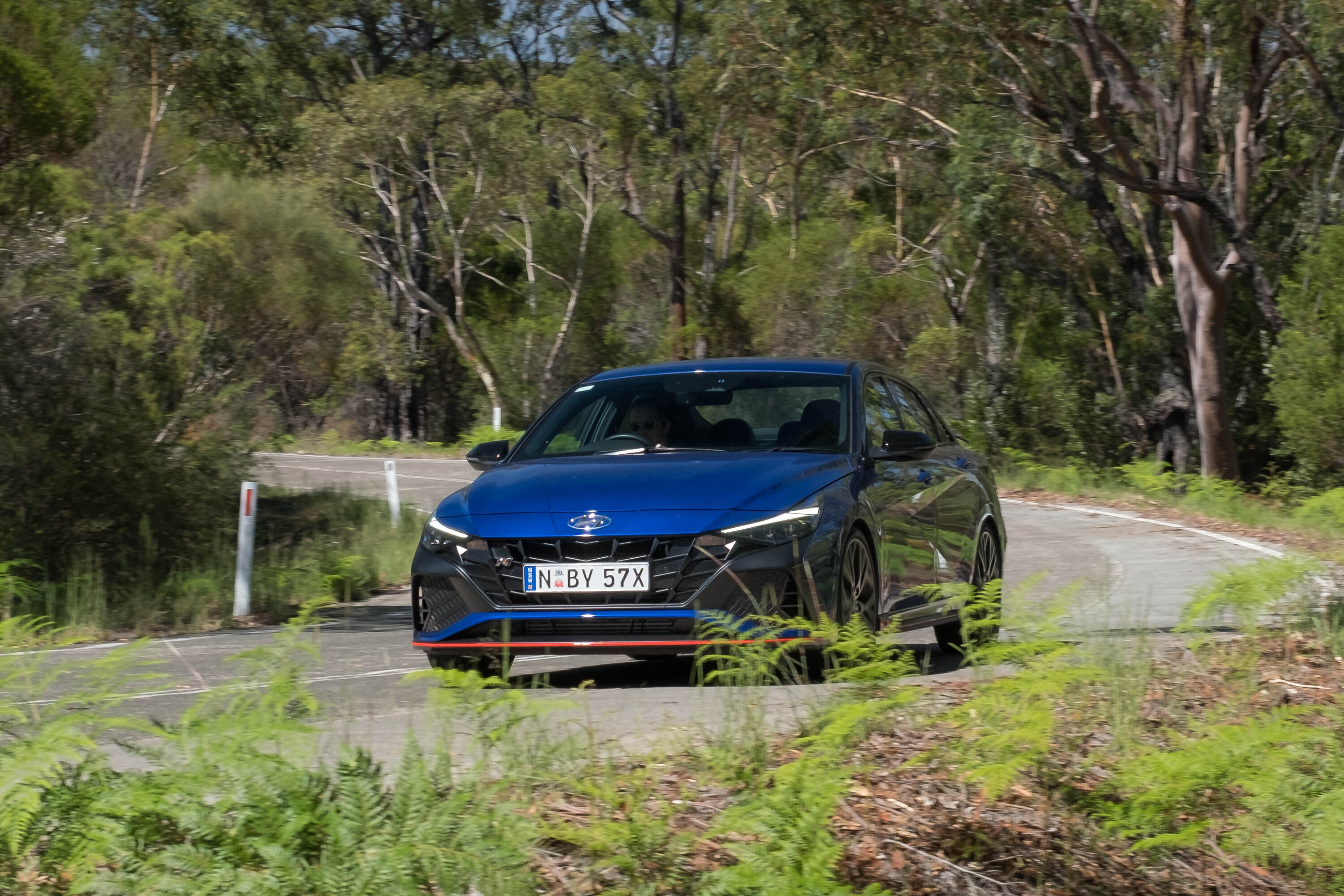
| 2023 Hyundai i30 Sedan N drivetrain | |
|---|---|
| Engine | 2.0-litre four-cylinder turbo-petrol |
| Drive | front-wheel |
| Power | 206kW @ 5500-6000rpm |
| Torque | 392Nm @ 2100-4700rpm |
| Transmission | 8-speed dual-clutch |
The engine bay is larger, so some of the intakes and ducting have been optimised.
The K3 platform is lighter and stiffer (including that hefty brace in the boot) and even the front axle is different, which Hyundai says is WRC-derived and saves a few kilos of unsprung weight.
Except it isn’t completely different, spiritually. It has the same drivetrain – including Hyundai’s brilliant eight-speed dual-clutch which defies its genre by being almost as good as a torque converter in traffic but with all the performance advantages of the dual-clutch auto. I do like the manual transmission i30s, but I’d have the DCT in a heartbeat.
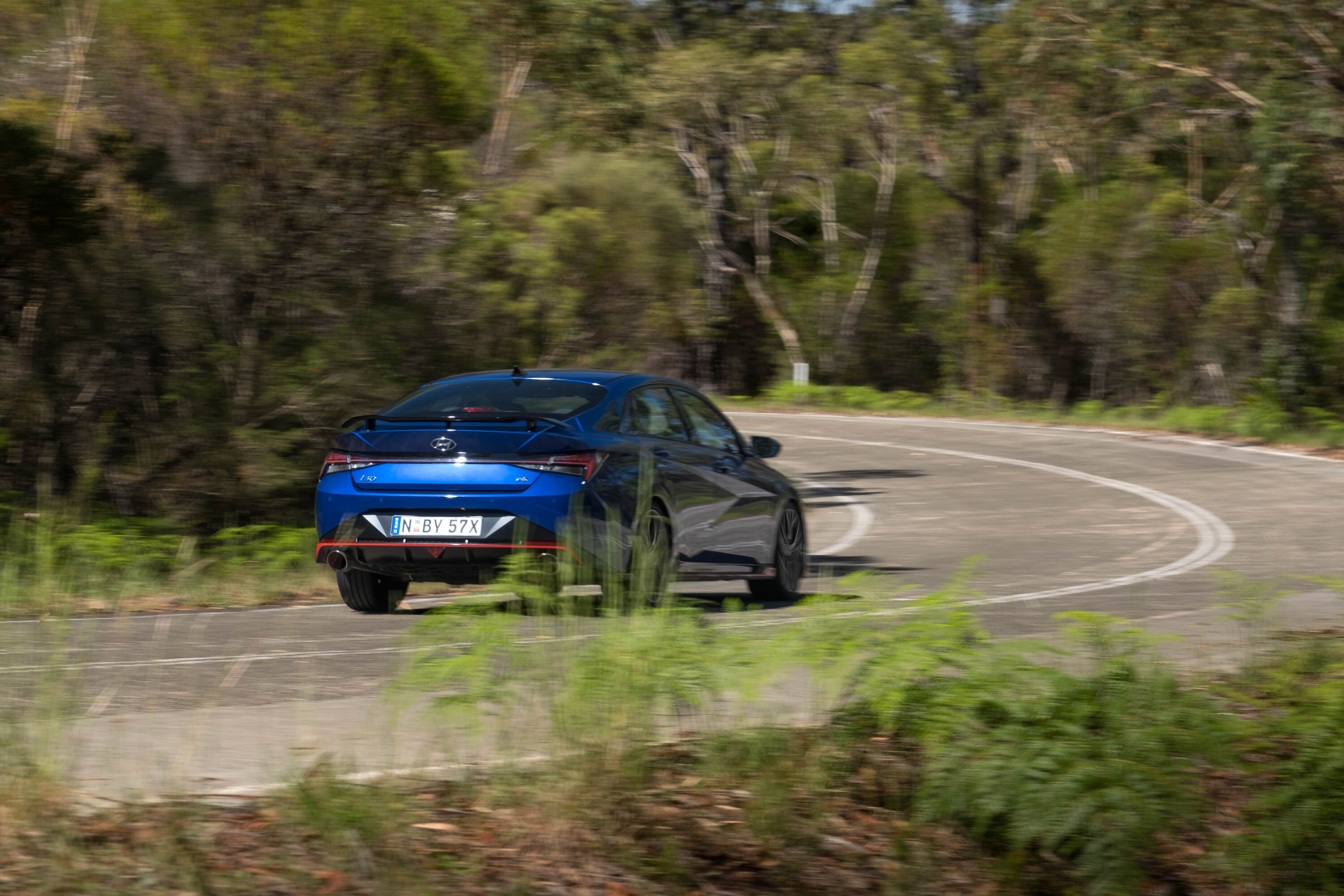
Firing down a twisting road is an absolute joy in this car.
It shifts super-fast when you want it, responding to the paddles almost instantly. The ratios aren’t spread too far apart and keep the engine on the boil. But in the suburban hustle, it’s smooth and competent and you could be driving a regular automatic i30 sedan.
Firing down a twisting road is an absolute joy in this car. The way the front end dives where you point it while the rear is actually part of the fun rather than just trailing along behind inspires confidence that the car is here to play.
You can even choose how the car sounds inside via the screen – TCR? High-performance car? WRC car? Fine. It’s all piped in through the speakers and only makes a slight difference, but you still get some quality crackle out of the tailpipes no matter which you choose.
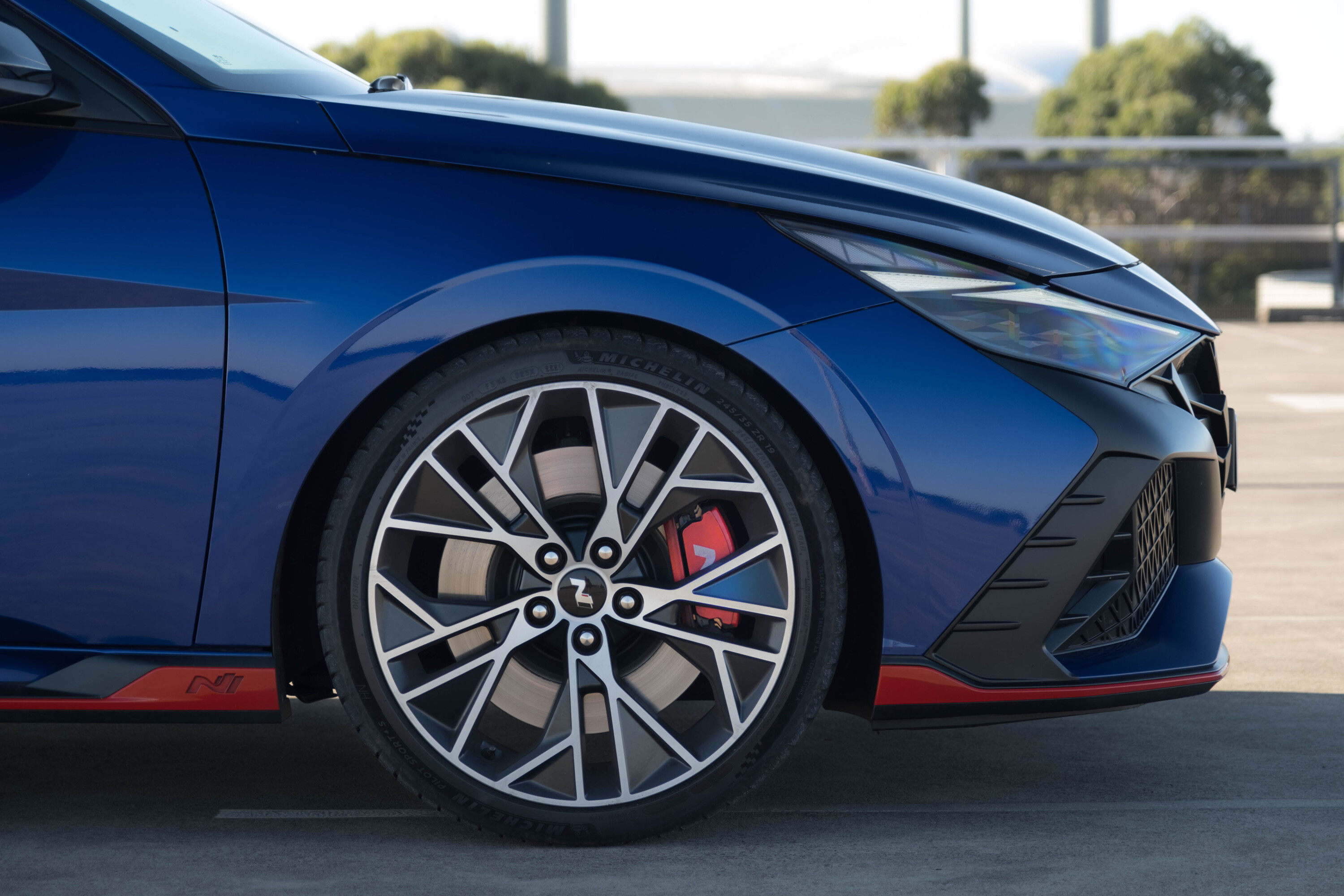
Hyundai specifies the Sedan N with Michelin Pilot Sport 4S tyres, which enthusiasts swear make a difference over the hatch’s Pirelli P Zero rubber.
The Michelins are possibly a mite quieter but they seem to handle the engine’s torque a little better than the tramp-prone hatch. It’s a combination of things, but the tyres are certainly up to the job.
They took a pounding at the launch at Sydney Motorsport Park and were still fine to drive home. This car was fresh from a weekend at The Bend and there was still plenty of grip on offer.
Having spent a week on the road doing normal stuff as well as a day on track at its launch, I really appreciated how big an impact the mechanical limited-slip differential has on the way the car behaves.
The N-Line is delightfully unruly with its open diff but the way the N tames its front end and gives you the confidence to pile into corners at speed – or, in more mundane situations, stay out of trouble – is inspired.
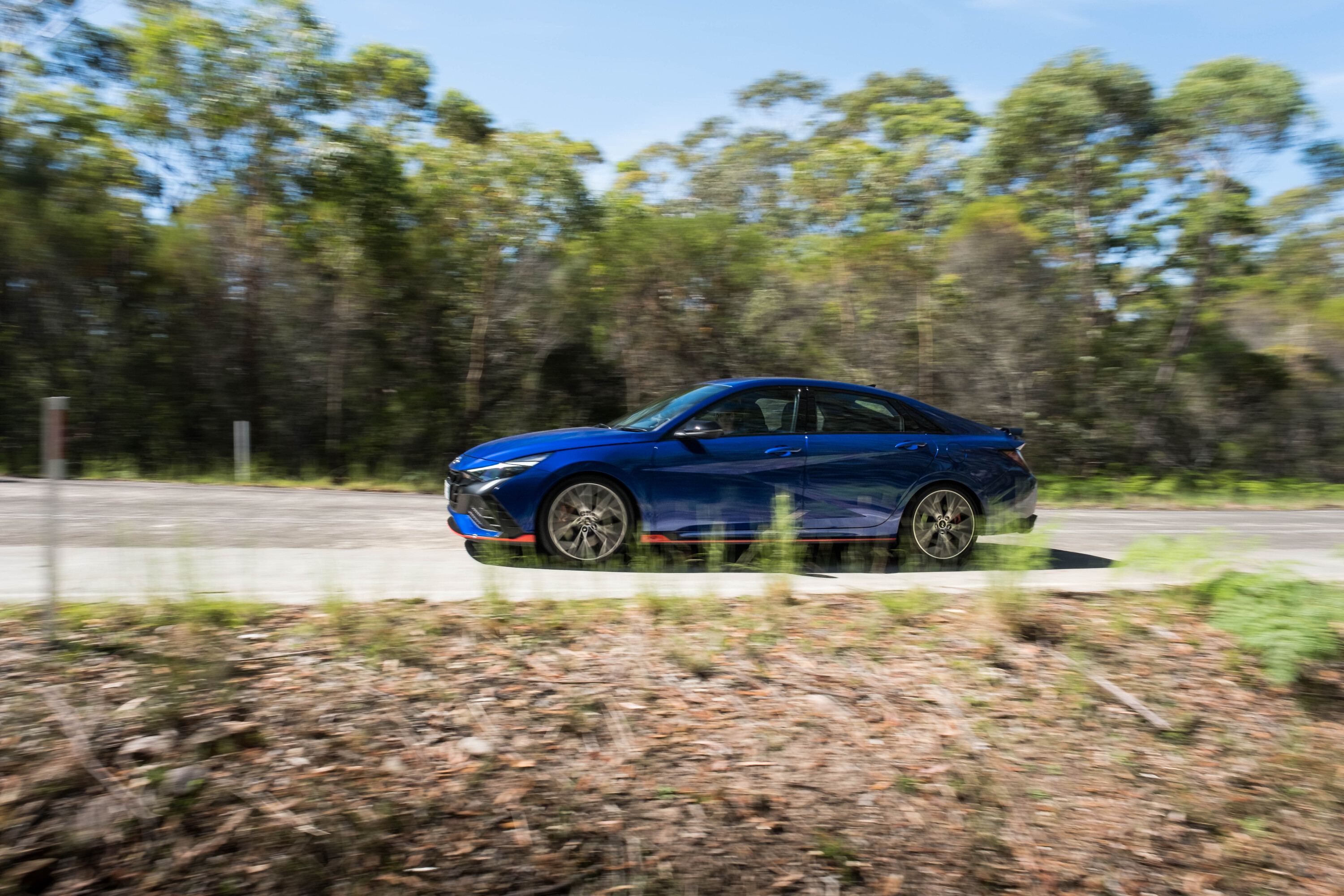
It also hit home just how well-engineered this car is. While the i30 SR and its N-Line successor are fun and all that, there’s nothing like the depth that you find in the full-house N.
The extra work done to the sedan is absolutely spot-on, and I don’t think I’d change a thing about how it goes. I’m not the world’s greatest driver on the track or off it and I’d never come close to this car’s ability, but it’s so nice to know it’s there and it’s fun.
It’s also a perfectly reasonable daily. With the suspension in Comfort mode, it’s still quite firm and the steering weighty, but you can drive it all day and not feel like you’ve done ten rounds unlike, say, the absolutely brilliant but not very livable Renaultsport Megane (may it rest in peace).
If any of the terms in this section have left you scratching your head, these articles will help bring you up to speed!
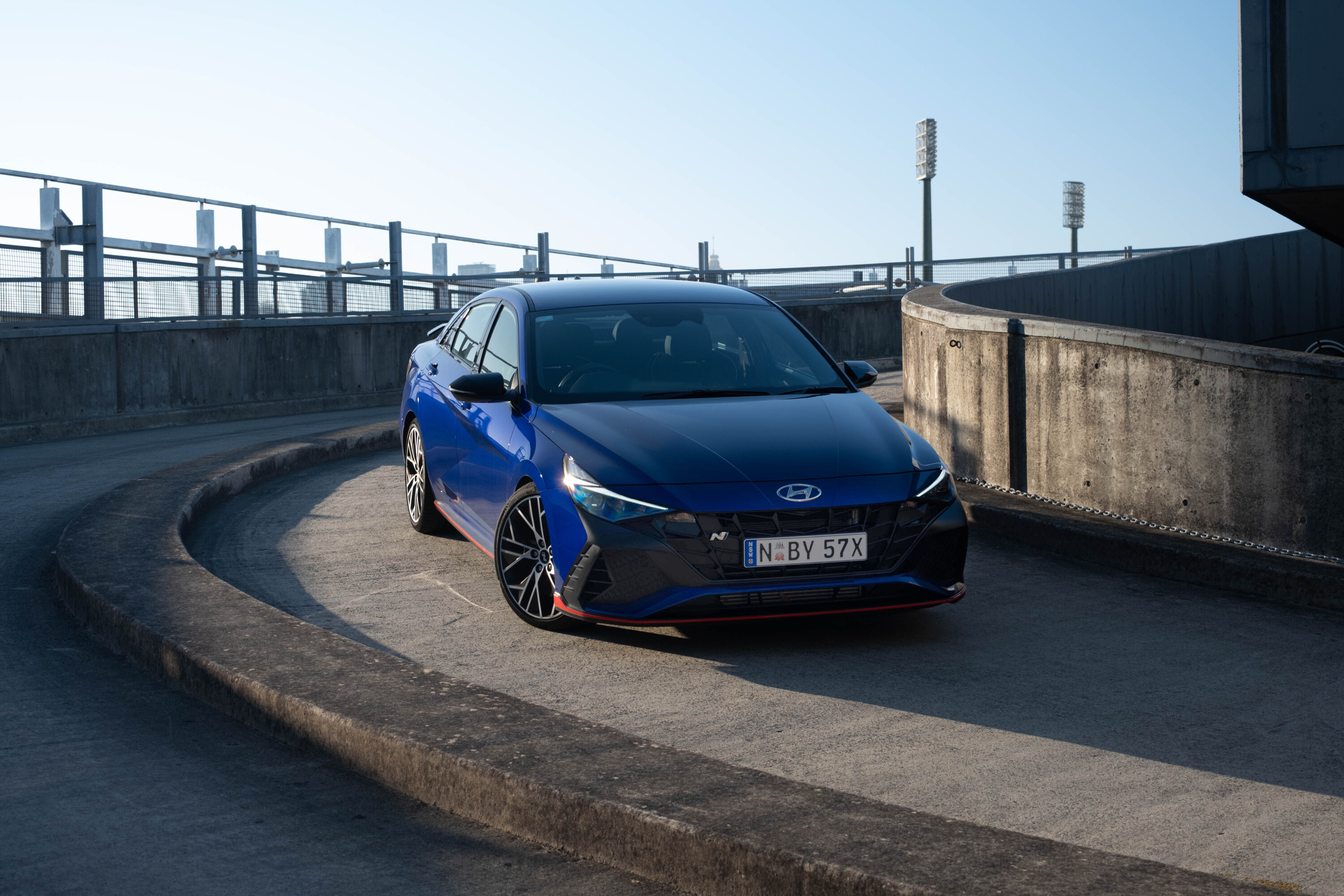
- What is a Powertrain or Drivetrain?
- Power vs torque
- Car suspension explained
- Automatic transmissions (‘gearboxes’) explained
- Chassis control systems explained
- Car vs Ute vs SUV: How the vehicle you buy should guide the way you drive
Hyundai’s ADR testing threw an 8.2L/100km on the combined cycle.
The Korean company is famously honest in its fuel testing so it was surprising to see 9.9L/100km on the dial during this test. Because I was having so much fun, I was convinced that I’d have blasted it into the 12s.
| 2023 Hyundai i30 N Sedan fuel figures | |
|---|---|
| Fuel economy (claimed) | 8.2L/100km |
| Fuel economy (trip computer) | 9.9L/100km |
| Fuel type | 95 RON |
| Fuel tank capacity | 47 litres |
While a lot of people with rolls of tin foil handy remain convinced trip computers are out by a factor of seven million, that didn’t seem likely in the circumstances and I can only assume that in normal driving this is a very thrifty car given its performance. No doubt the eighth gear helped on highway runs to and from the good bits of road.
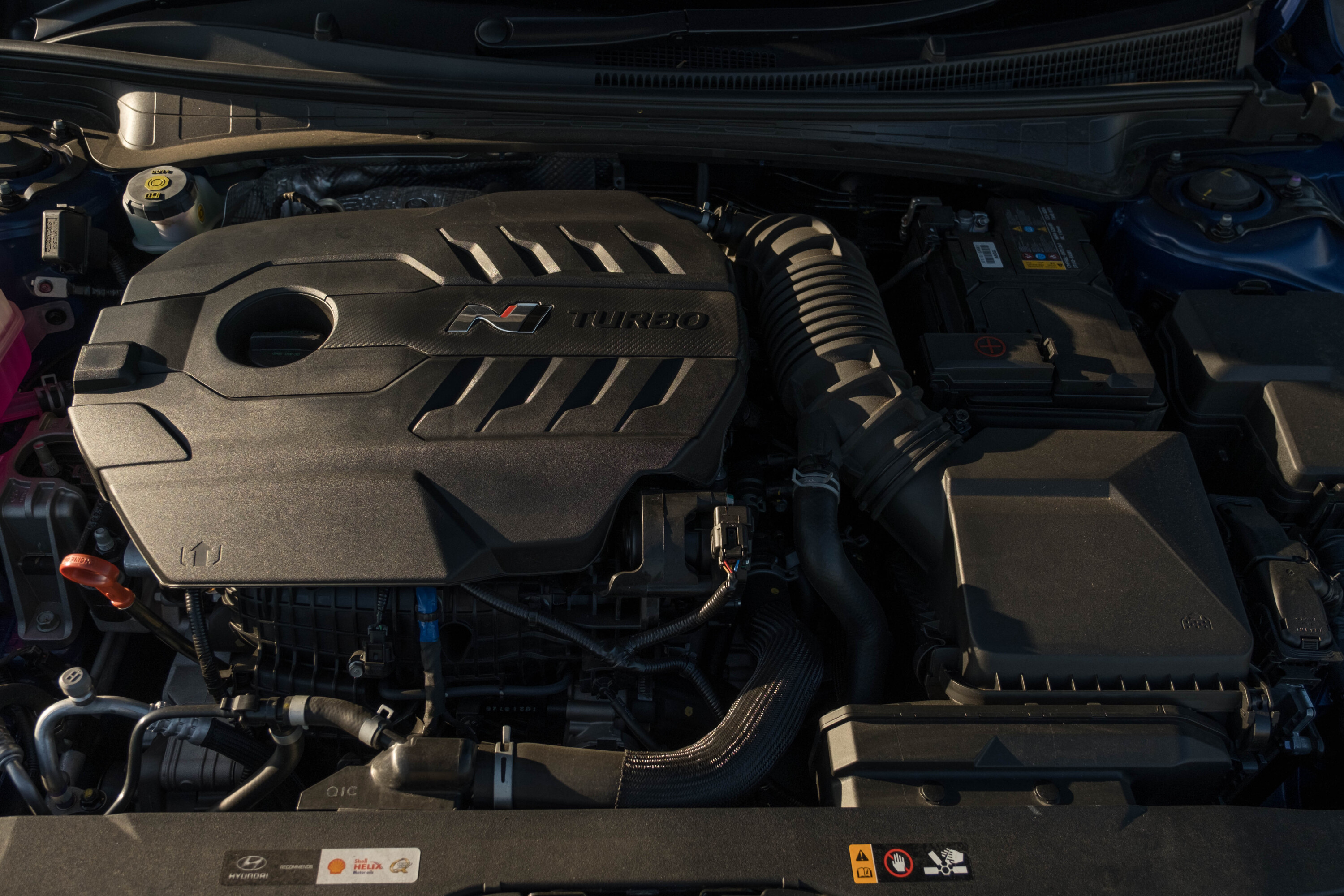
How safe is it?
The i30 Sedan N doesn’t have an ANCAP rating, but it certainly has plenty of safety gear.
As the hatch is on a different platform you can’t really extrapolate those findings. However, in 2021 the US-based IIHS awarded the Elantra – which is similar if not identical to the Australian market i30 sedan – a Top Safety Pick.
| 2023 Hyundai i30 Sedan N safety features | |
|---|---|
| 6 airbags | Leading vehicle departure alert |
| ABS | Reverse cross-traffic alert |
| Blind-spot monitoring | Reversing camera |
| Front & rear auto emergency braking | Safe exit warning |
| Lane follow assist | Speed sign recognition |
| Lane-keep assist | Stability and traction controls |
The forward auto emergency braking system has pedestrian and cyclist detection and works at high and low speeds.
Kids are looked after with two lots of ISOFIX points and three top-tether anchors.
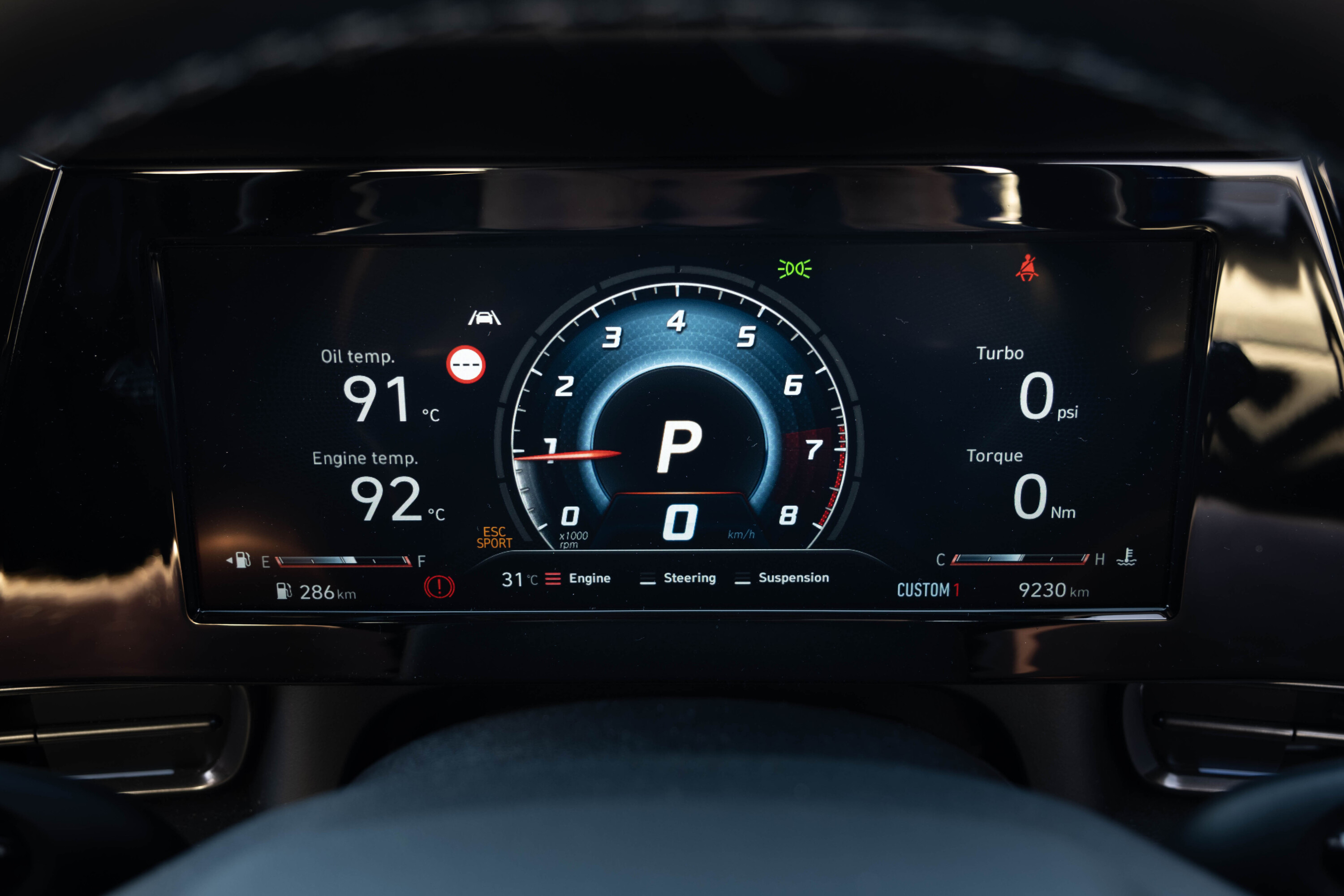
Warranty and running costs
Hyundai sends you home with a five-year, unlimited-kilometre warranty plus roadside assistance.
(Almost) uniquely, you can fire this car around a race track and – so long as you’re not racing it competitively – your warranty stands. Porsche lets you do that with a GT3, but that’s ten times more expensive than an i30 N.
Servicing comes around every 12 months or 10,000km, which is a bit on the short side. These cars tend to be driven by their owners, but the interval is par for the course for turbocharged Korean and Japanese cars for some reason. You can buy three, four or five years of servicing for $1005, $1340 and $1675 respectively. That works out at about $335 or $340 per service depending on the package you choose, which isn’t actually that bad.
Weirdly, it doesn’t cost any more to pay-as-you-go, so I guess prepay is just useful for rolling up into a lease or finance deal.
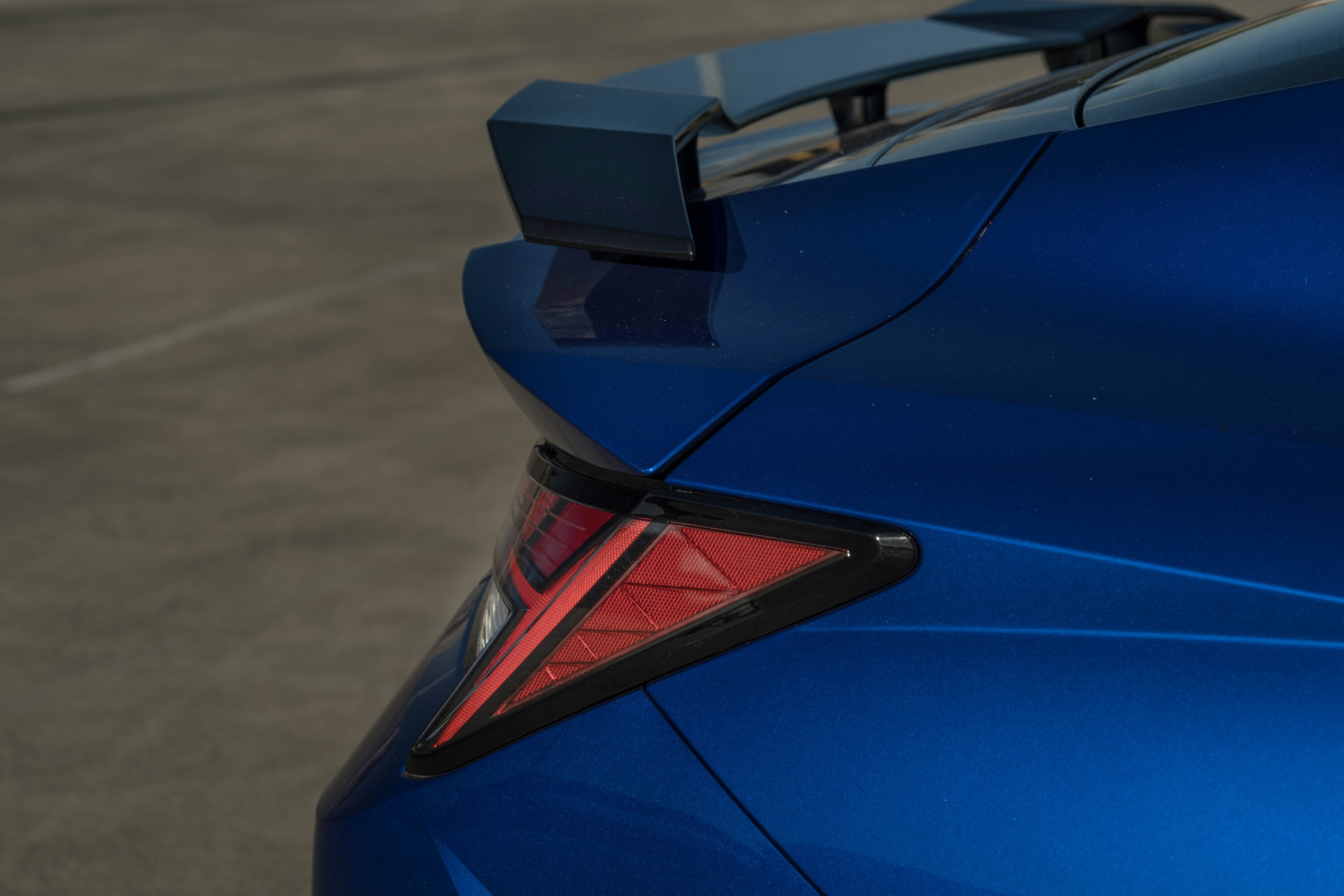
VERDICT
The i30 N sedan is – for me, at least – the best of the small car performance trio from Hyundai.
It’s comfortable and remarkably refined for a hot sedan and can serve as anyone’s daily driver without complaint.
It also goes like stink, sounds great doing it and is incredibly well-engineered for the money, standing up to rivals like the old Civic Type R and even the Audi S3 (lack of all-wheel drive notwithstanding).
This is a characterful, hilarious-but-serious machine and bafflingly late on the scene for a brand that is pivoting to electric performance just a few years after crashing the hot hatch/sedan/SUV party.
It’s more fun than just about anything on the road at any price but remarkably cheap to own and run. Not sure what else you could ask for.
Got a bit more to spend?
| 2023 Hyundai i30 Sedan N specifications | |
|---|---|
| Body | 4-door, 5-seat sedan |
| Drive | front-wheel |
| Engine | 2.0-litre four-cylinder turbo-petrol |
| Bore x stroke | 86 x 86mm |
| Compression | 9.5:1 |
| Power | 206kW @ 5500-6000rpm |
| Torque | 392Nm @ 2100-4700rpm |
| Power to weight | 139kW/tonne |
| Transmission | 8-speed dual-clutch |
| Weight | 1480kg |
| Suspension | MacPherson struts, coil springs, adaptive dampers (f), multi-links, coil springs, adaptive dampers (r) |
| L/W/H | 4675/1825/1415mm |
| Wheelbase | 2720mm |
| Tracks | 1584mm front, 1579mm rear |
| Steering | electrically assisted rack-and-pinion |
| Brakes | 360mm ventilated discs front, 314mm ventilated discs rear |
| Wheels | 19.0 x 8.0-inch (front/rear) |
| Tyres | 245/35 ZR19 (front/rear), Michelin Pilot Sport 4S |
| Price | $50,200 + on-road costs |
Score breakdown
Things we like
- Awesome drivetrain
- Fantastic fun to drive
- Genuine everyday proposition
- Looks amazing
Not so much
- Front passenger seat unpowered
- Lots of grey plastic
- No wireless smartphone integration
- No adaptive cruise
We recommend
-
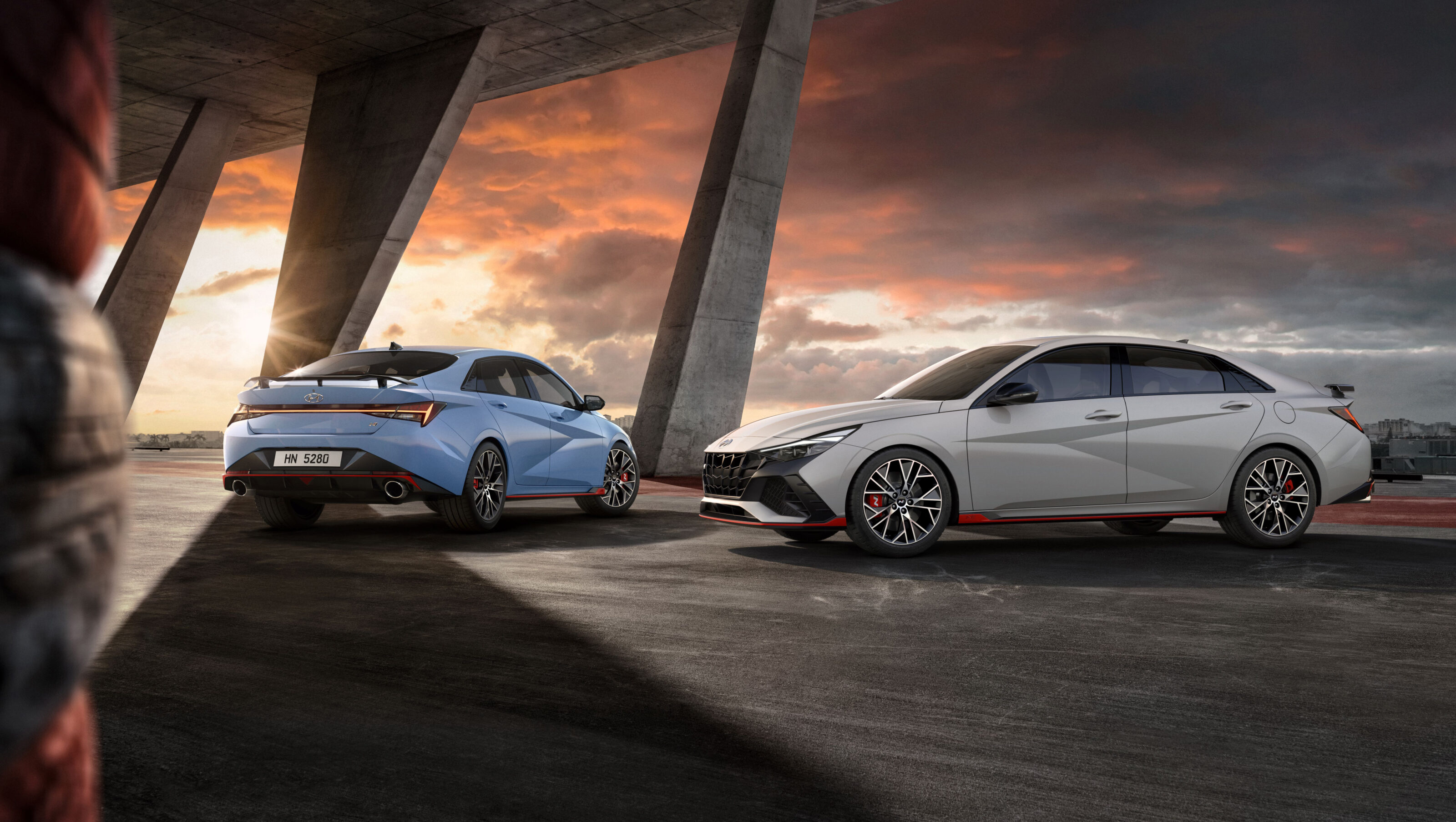 News
News2022 Hyundai i30 Sedan N pricing and features for Australia
Hyundai N Division’s newest star athlete brings a booted sedan body to the high performance range
-
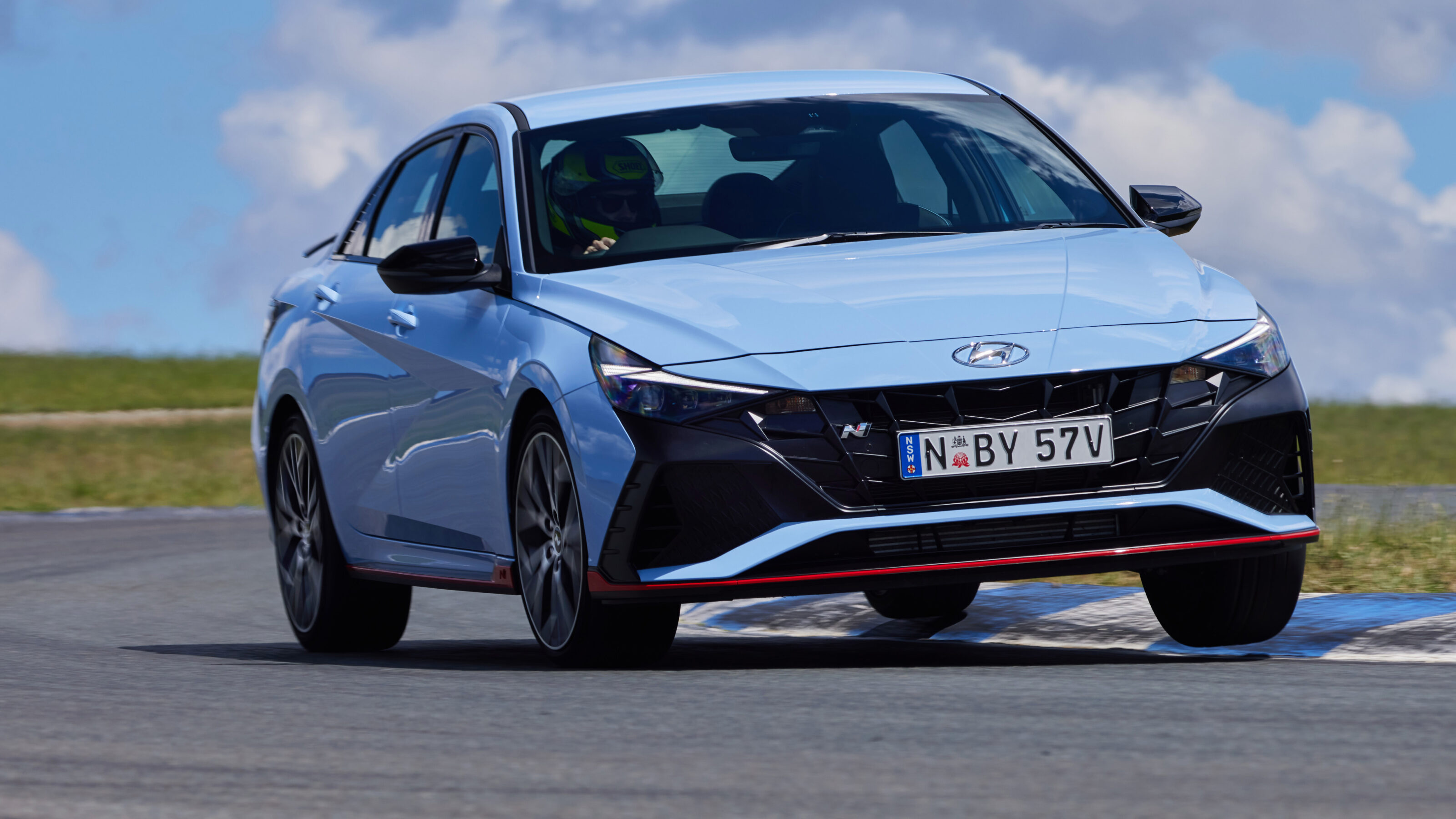 Reviews
Reviews2022 Hyundai i30 Sedan N review: Australian first drive
N Division’s latest offering might just be the most compelling one yet
-
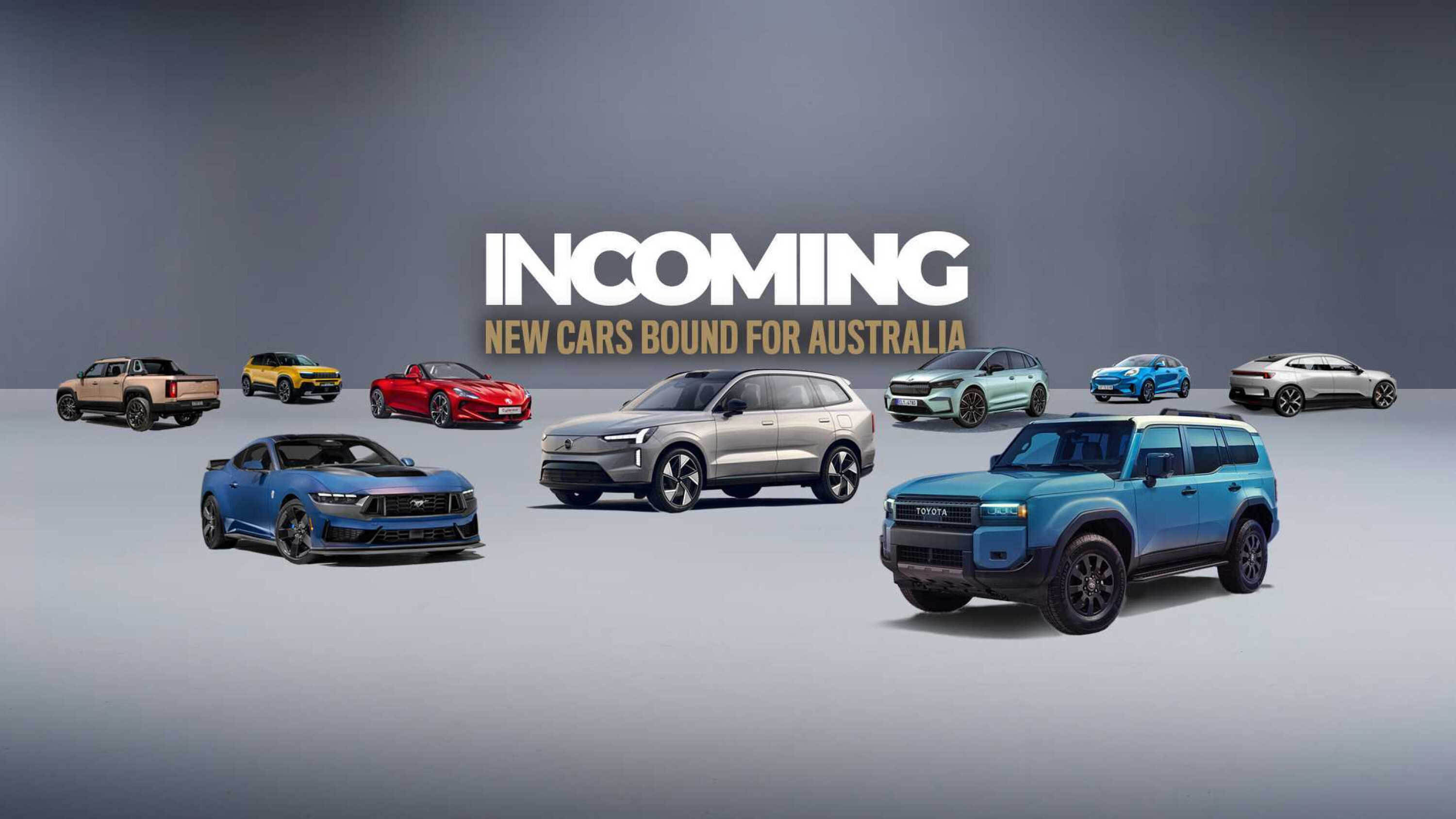 News
News2025 New Car Calendar: All the new cars coming to Australia
Take a look at our list of what is expected to launch in Australia in 2025 – plus those we might not see locally just yet


